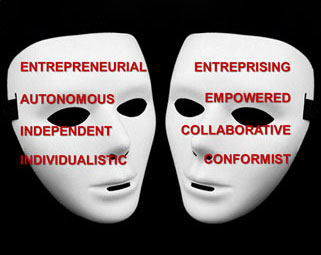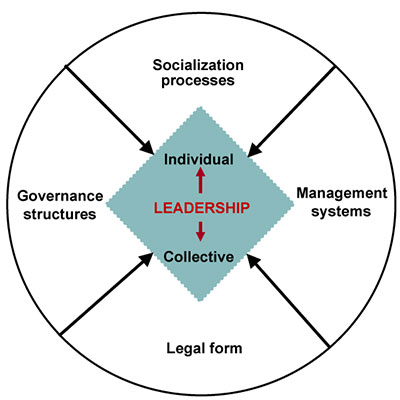A Managing Partner approached me recently with a question about his partnership: “How can we all work together to create an environment where partners thrive and prosper?”
After our initial discussion, I refined his general brief into four questions for me to explore with his partners during their partner conference:
1. What is our partnership ethos?
2. What creates and sustains that ethos?
3. What is currently challenging it?
4. How can we ensure it adapts and survives?
As my research shows, the ethos of partnership represents a powerful means of motivating and securing the commitment of autonomous professionals. But it can be hard to identify and define.
The answers to the questions above will be highly personal to each partnership. Leaders need to develop a sophisticated understanding of the partnership ethos within their firm, to understand how to influence it, and when to leave well alone.
Through my research into partnership governance, I help senior professionals identify the actions to take and the commitments to make to unleash the “power” of partnership.

Faces of partnership
The partnership ethos represents the beliefs and behaviours that bind a community together. Some partnerships are “bound together” by their collective belief in individualism. This is fine as long as all partners are playing by the same (usually unwritten) rules. Other partnerships are bound together by individuals’ belief in the power of the collective — partners are content to sacrifice some personal autonomy for the “greater good”.
But what underpins these different sets of beliefs?
Partnership dynamics
The tension between individualism and collectivism is fundamental to understanding the dynamics of partnership. The legal form of partnership creates the tension; the ethos of partnership reconciles that tension.
My research into partnership dynamics analyses how the interests of individual partners are reconciled with the interests of the collective through the interaction of socialisation processes, management systems, and governance structures.


Socialization processes
Throughout their extended “apprenticeship” period, potential partners learn to subsume their identity into that of their profession, their organization and, ultimately, their partner group. Through the process of socialization, the professional learns in effect to become self-regulating, trusted by the rest of the partners to act in accordance with their partnership ethos.
To what extent has the move to hybrid working disrupted this informal socialization process within your firm?
Management systems
In partnerships informal peer pressure is backed up by formal management systems for evaluating, rewarding, and sanctioning partners.
Partners who have “grown up” together will understand how to apply and respond to peer pressure. But, with a less stable and more heterogeneous partner group, formalized systems of evaluation and sanction become necessary.
How do your partners develop the right balance between informal peer pressure and formal management systems?


Governance structures
Whereas partner management systems define how partners are managed by their leaders, governance structures define how the leaders are managed by their partners.
Ambiguous authority makes it difficult for leaders to be effective. They have been elected by a majority of their peers and can be deposed if they misjudge the level of support.
Do the leaders have enough delegated authority to lead effectively and are the right checks and balances in place within your partnership?
Further resources
Other specialist subjects
Laura offers advisory consultations and keynote speeches which draw upon her 30 years of academic research to help professional organizations navigate their most pressing challenges. Here is a selection of the subjects she covers.
Collective leadership
Influencing professionals and mastering distinctive power dynamics
Find Out More


